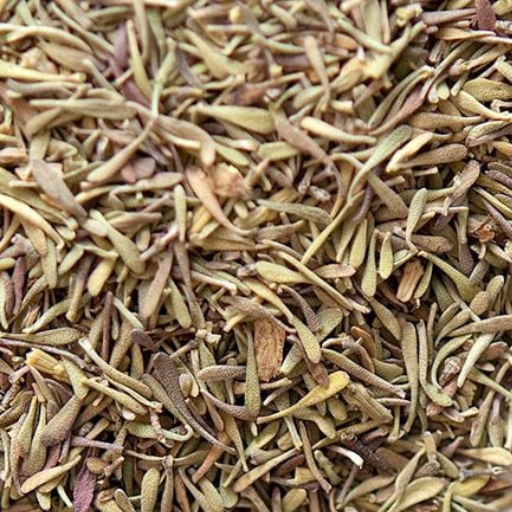Discover Thyme It's Unique Flavor and Health Benefits
What are the health Benefits of Thyme?

Thyme is an herb with a distinct smell. The flowers, leaves and oil are commonly used to flavour foods such as chicken, fish, meat, eggs, sauces, soups, vegetables, cheese, pastas and are used as medicine. It is both sold in the fresh or dried form. Thyme, a fragrant and versatile herb native to the Mediterranean region, has been cherished for centuries for both its culinary and medicinal properties. Its delicate leaves and robust flavor make it a staple in cuisines worldwide, where it enhances dishes ranging from soups and stews to meats and vegetables. Beyond its culinary uses, thyme is valued for its potential health benefits, believed to possess antioxidant, anti-inflammatory, and antimicrobial properties. Whether used fresh or dried, thyme adds depth and aroma to recipes while offering potential wellness advantages, making it a beloved herb in both kitchen and herbal medicine practices.
Health Benefits Of Thyme
Thyme Reduces high blood pressure, Fights against food borne bacterial infection, Prevents colon cancer, Prevents yeast Infection, Prevents breast cancer, Prolong the stability of cooking oil, Prevents common skin problem, is effective for treating acne, Helps alleviate cough, Repels pests, is Aromatherapeutic, Improves eye sight, Keeps the bone healthy, Relieves muscle cramp, Treats respiratory issues, Has potential antioxidant properties, Improves circulation of blood, Protects the heart, Improves digestive health, Aids in weight loss, Eases menstrual cramps, Traditionally used during pregnancy, Boosts immune system, Has antibacterial, antifungal and antimicrobial properties, Reduces stress, Treats oral thrush, Reduces atopic dermatitis, Protects oral and dental health, Prevents food poisoning, Improves cognition and contains essential vitamins and minerals.
Brief History Of Thyme
Thyme is indigenous to the Mediterranean region.Wild thyme grows in the Levant, where it might have been first cultivated. Ancient Egyptians used thyme for embalming. The ancient Greeks used it in their baths and burnt it as incense in their temples, believing it was a source of courage. The spread of thyme throughout Europe was thought to be due to the Romans, as they used it to purify their rooms and to “give an aromatic flavour to cheese and liqueurs”. In the European Middle Ages, the herb was placed beneath pillows to aid sleep and ward off nightmares. In this period, women also often gave knights and warriors gifts that included thyme leaves, as it was believed to bring courage to the bearer. Thyme was also used as incense and placed on coffins during funerals, as it was supposed to assure passage into the next life.
The name of the genus of fish Thymallus, first given to the grayling (T. thymallus, described in the 1758 edition of Systema Naturae by Swedish zoologist Carl Linnaeus), originates from the faint smell of thyme that emanates from the flesh.
REFERENCES